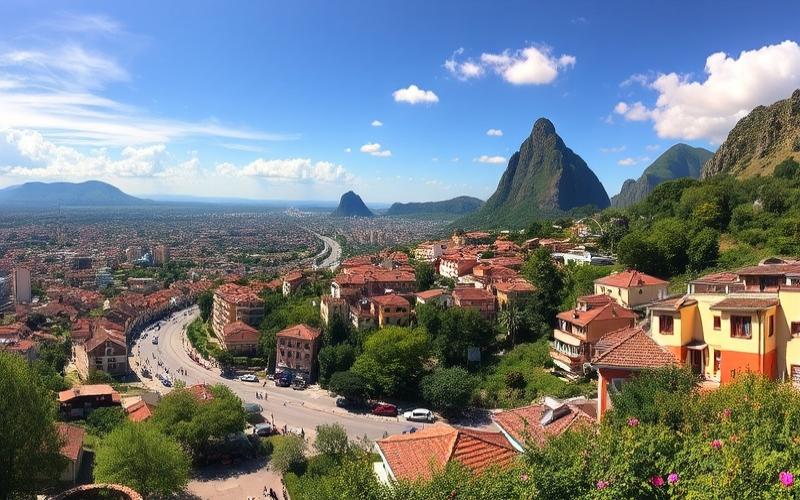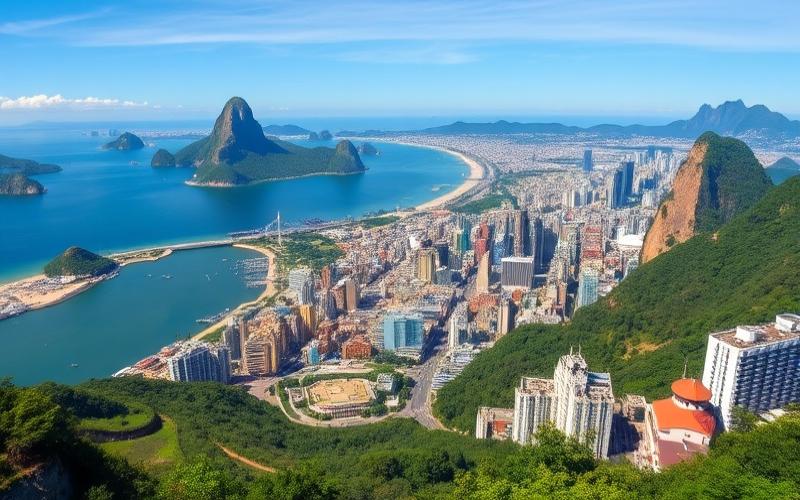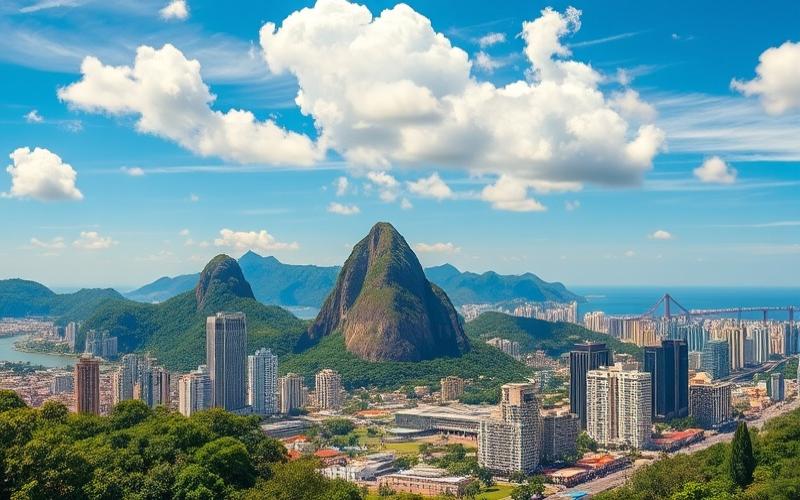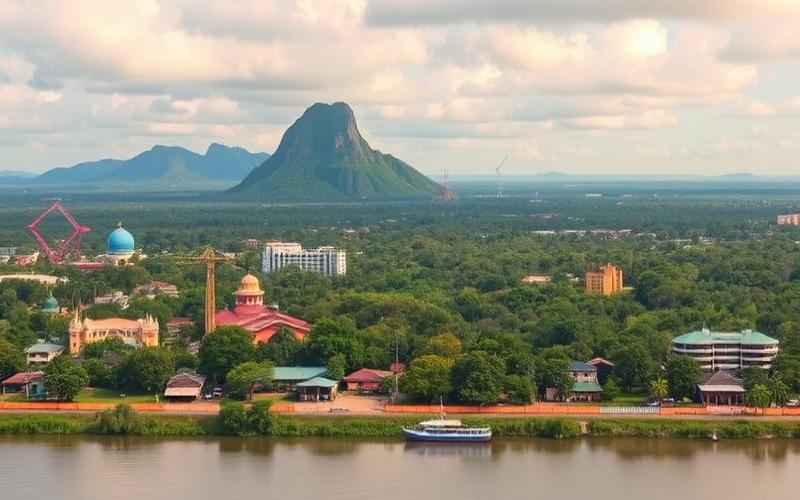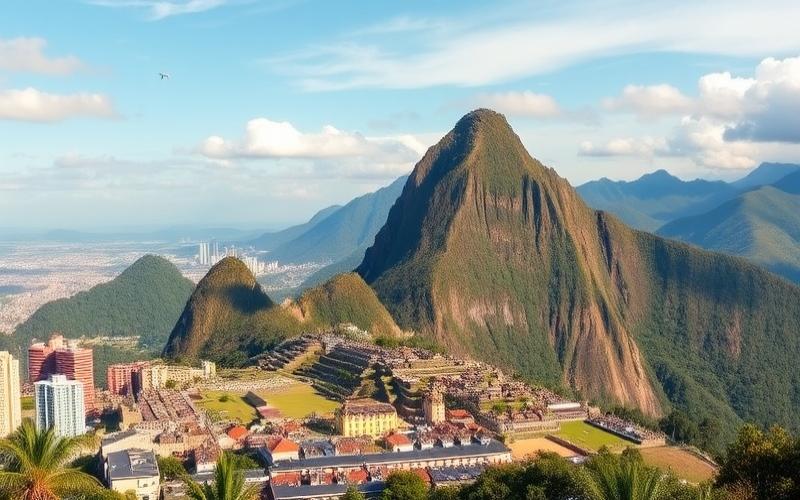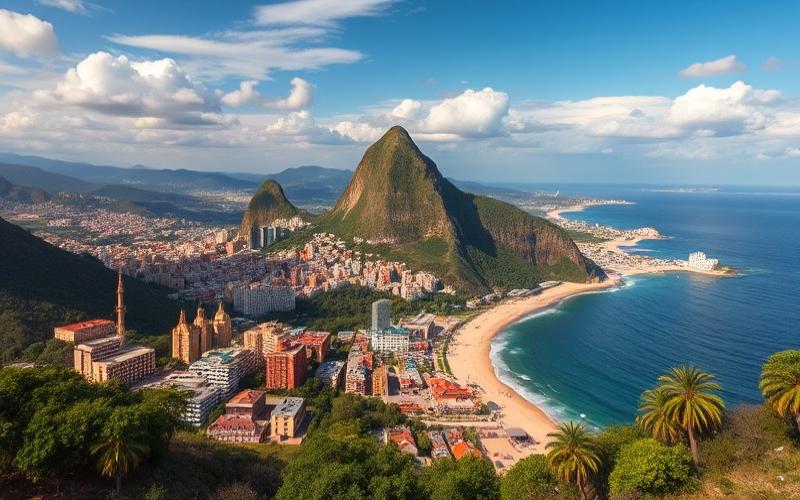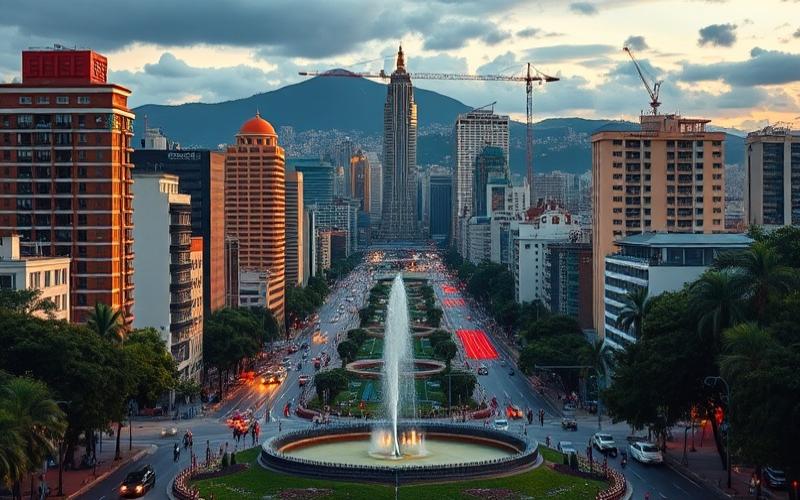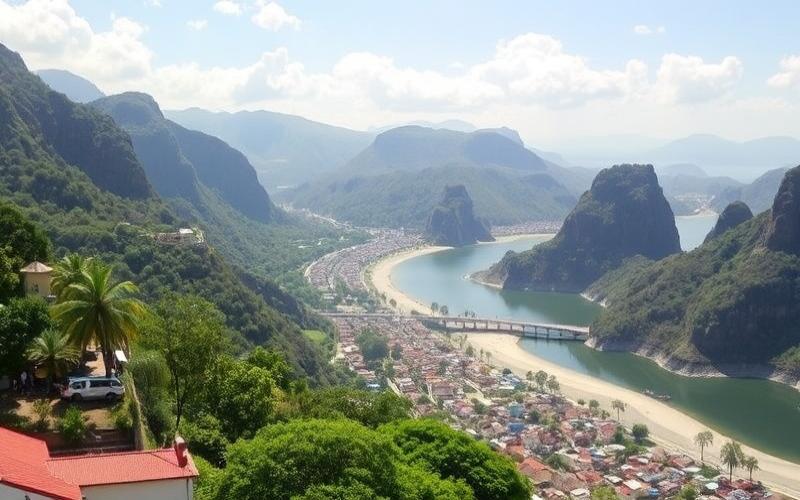
 Published on and written by Cyril Jarnias
Published on and written by Cyril Jarnias
Brazilian commercial real estate offers compelling investment opportunities for savvy investors. Despite recent economic challenges, Latin America’s largest country shows significant growth potential in this sector, driven by a young and dynamic population, an expanding middle class, and increasing demand for modern infrastructure. Let’s take a closer look at the various facets of this promising market.
A Diverse Range of Commercial Properties
The Brazilian commercial real estate market offers a wide variety of options for investors, each with its own characteristics and opportunities:
Class A Offices: The Cream of Corporate Real Estate
High-end office buildings, particularly in the business districts of São Paulo and Rio de Janeiro, attract major national and international corporations. These properties offer modern amenities, strategic locations, and considerable prestige. Although vacancy rates have increased in recent years, demand for quality spaces remains strong, especially in prime areas.
Shopping Malls: Capitalizing on Growing Consumption
Brazil has over 600 shopping malls, with significant concentration in the southeastern region. These assets benefit from the increasing purchasing power of the middle class and evolving consumption habits. Major groups like BR Malls and Multiplan dominate the sector, but opportunities also exist for medium-sized malls in growing secondary cities.
Warehouses and Logistics: A Booming Sector
The explosion of e-commerce and the need to optimize supply chains are driving demand for modern logistics spaces. Areas around São Paulo, Campinas, and Rio de Janeiro are particularly sought after. The development of transportation infrastructure (roads, ports, airports) is also creating new opportunities in other regions of the country.
Hospitality: Betting on Tourism and Business
Despite fluctuations in the tourism sector, Brazilian hospitality presents interesting potential, particularly in major cities and leisure destinations. Investors can consider acquiring existing hotels or partnering with international chains to develop new establishments.
Attractive Returns and Risk Management: Finding the Right Balance
Potentially High Returns
Brazilian commercial real estate can offer attractive returns, often higher than those seen in mature markets. Yield rates typically range between 7% and 12% depending on asset type and location, with peaks reaching 15% for specific opportunities.
Risk Factors to Consider
However, these high returns come with risks that should be carefully assessed:
- Economic Volatility: The Brazilian economy is subject to significant cycles that can impact real estate asset performance.
- Currency Risk: Fluctuations in the Brazilian real against foreign currencies can affect profitability for international investors.
- Regulatory Complexity: Brazil’s legal and tax framework can be complex, requiring local expertise.
- Regional Disparities: Performance can vary significantly between different regions and cities across the country.
Risk Mitigation Strategies
To optimize the risk/return ratio, investors can adopt several strategies:
- Geographic and sectoral diversification of the portfolio
- Partnerships with experienced local players
- Thorough due diligence on legal, tax, and technical aspects
- Use of hedging instruments for currency risk
- Focus on quality assets in strategic locations
A Changing Sector: Emerging Trends and Opportunities
Digital Transformation and Flexible Spaces
The COVID-19 pandemic accelerated certain ongoing trends in Brazilian commercial real estate. Flexible office spaces and coworking solutions are gaining popularity, meeting the needs of an increasingly mobile and connected workforce. Investors can consider adapting existing assets or developing new concepts to meet this growing demand.
Sustainability and Environmental Certification
Green and certified buildings (LEED, AQUA-HQE) are attracting increasing attention from tenants and investors. Integrating ESG (Environmental, Social, and Governance) criteria into investment strategies is becoming essential, opening the way for renovation and sustainable development opportunities.
Conversion of Obsolete Assets
Transforming aging commercial buildings into mixed-use or residential spaces represents an emerging trend, particularly in city centers. These conversion projects can offer interesting opportunities for creative investors.
Growth of Secondary Cities
Although São Paulo and Rio de Janeiro remain the most important markets, medium-sized cities like Belo Horizonte, Curitiba, and Porto Alegre are attracting increasing investor attention. These markets often offer better value for money and interesting growth prospects.
Conclusion: A High-Potential Market for Savvy Investors
Brazilian commercial real estate presents significant potential for investors capable of navigating its complexity. Despite economic and regulatory challenges, the market offers attractive opportunities across various segments, driven by favorable long-term demographic and economic trends.
To succeed in this market, it’s crucial to adopt a cautious and well-informed approach. A thorough understanding of local dynamics, rigorous due diligence, and strategic partnerships with local players are essential to maximize chances of success.
Investors who can identify the right opportunities and effectively manage risks can benefit from attractive returns while participating in the economic development of Latin America’s largest country.
Good to Know:
The Brazilian commercial real estate market offers potentially high returns but requires a cautious and well-informed approach. Diversification, local expertise, and attention to emerging trends are key success factors.
Disclaimer: The information provided on this website is for informational purposes only and does not constitute financial, legal, or professional advice. We encourage you to consult qualified experts before making any investment, real estate, or expatriation decisions. Although we strive to maintain up-to-date and accurate information, we do not guarantee the completeness, accuracy, or timeliness of the proposed content. As investment and expatriation involve risks, we disclaim any liability for potential losses or damages arising from the use of this site. Your use of this site confirms your acceptance of these terms and your understanding of the associated risks.


